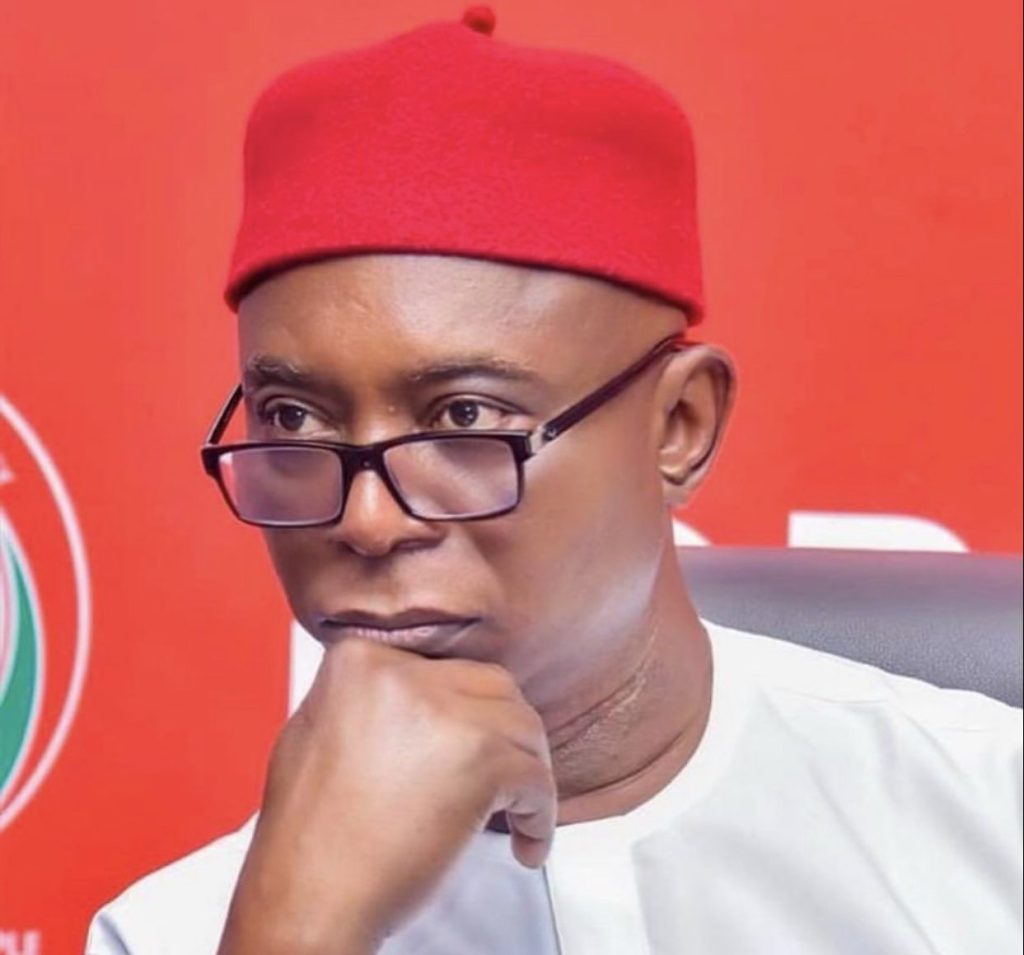Senator Ned Nwoko’s resignation from the Peoples Democratic Party (PDP) marks a significant political development, stemming from deep-seated divisions and factionalism within the party’s Delta State chapter. Nwoko, representing Delta North senatorial district, expressed his disillusionment in a resignation letter dated January 30, 2024, addressed to the party leadership in his ward. He cited the escalating internal strife and irreconcilable factions as the primary reasons for his departure, highlighting a recent physical altercation between top party functionaries as a stark illustration of the party’s deteriorating state. This incident, occurring just a day before his resignation, underscored the severity of the internal conflicts and their detrimental impact on the party’s ability to function effectively. Nwoko’s decision reflects a growing concern among party members about the PDP’s trajectory in Delta State and its capacity to deliver on its promises to the electorate.
The senator’s resignation letter details his struggle to reconcile his commitment to serving his constituents with the constraints imposed by the fractured party structure. He acknowledged the platform the PDP provided him during the 2022/2023 senatorial elections, enabling him to connect with the people of Delta North. However, he emphasized that the party’s internal turmoil has hindered his ability to fulfill the promises he made during his campaign. This internal struggle between loyalty to the party and dedication to his constituents ultimately led Nwoko to conclude that resigning was the only viable option to effectively represent the interests of his people. His departure signifies a potential shift in the Delta State political landscape, raising questions about the future of the PDP and the potential realignment of political forces in the region.
Nwoko’s decision underscores the broader challenges faced by political parties in Nigeria, particularly the struggle to maintain internal cohesion and prioritize the needs of the electorate over internal power struggles. The factionalism within the PDP, as highlighted by Nwoko, reflects a broader trend of internal divisions within political parties, often driven by competition for resources, power, and influence. These internal conflicts can undermine the party’s ability to effectively address critical issues facing the nation and can lead to disillusionment among both party members and the general public. Nwoko’s resignation serves as a cautionary tale about the dangers of unchecked factionalism and the importance of internal party reform to ensure that the interests of the people are prioritized.
Despite his resignation, Nwoko reaffirmed his commitment to serving his constituents and advancing their interests. He emphasized that his decision was made in their best interest and underscored his dedication to the progress and prosperity of Delta State and the nation as a whole. This commitment to public service, even outside the party structure, suggests that Nwoko intends to remain an active participant in the political landscape. His future political moves will be closely watched, as they could potentially reshape the political dynamics in Delta State and beyond. Nwoko’s departure creates a void within the PDP and presents an opportunity for other political parties to gain ground in the region.
Nwoko’s resignation from the PDP marks a turning point in his political career and raises questions about his future political affiliations. Will he join another existing party or explore the possibility of forming a new political movement? His decision will undoubtedly have significant implications for the political landscape in Delta State. The PDP, now facing a weakened position in the region, will need to address the internal issues that led to Nwoko’s departure to regain the trust and support of the electorate. The upcoming political cycles will reveal the full extent of the impact of Nwoko’s resignation and the subsequent realignment of political forces in the state.
In conclusion, Senator Ned Nwoko’s resignation from the PDP highlights the detrimental effects of internal party divisions and the importance of prioritizing the needs of the constituency. His decision underscores the challenges faced by political parties in Nigeria and the need for internal reforms to ensure effective governance and representation. Nwoko’s future political trajectory will be closely observed, as it has the potential to reshape the political landscape of Delta State and influence the broader political discourse in Nigeria. His resignation serves as a reminder that political parties must prioritize unity and internal cohesion to effectively serve the interests of the people and contribute to the nation’s progress.


